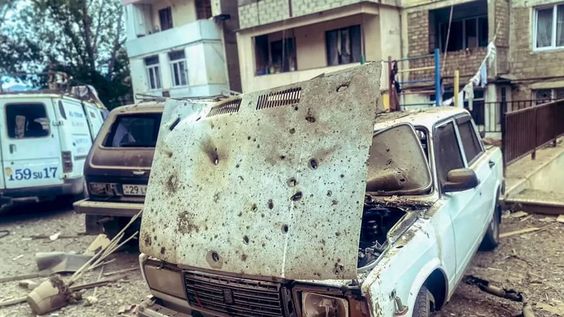Headlines
Operation on Nagorno-Karabakh is started by Azerbaijan, and it demands submission

After beginning what it referred to as “anti-terror” operations in the region on Tuesday, Azerbaijan announced its military measures in Nagorno-Karabakh are continuing for a second day.
It declared that it would continue until the ethnic-Armenian separatists gave up.
Around the internationally accepted as being a part of Azerbaijan separatist enclave, tensions in the South Caucasus have been high for months.
Three years ago, Azerbaijan and Armenia last engaged in hostilities.
The Azerbaijani defence ministry claimed in a statement on Wednesday morning that military hardware used by the Armenian armed forces, including as artillery and anti-aircraft missile batteries, had been “neutralised.”
Baku issued an ultimatum for “illegal Armenian military formations” to surrender their weapons and disband its “illegal regime” on Tuesday.
Following the collapse of the Soviet Union in the early 1990s, Azerbaijan and Armenia first engaged in hostilities. After that, in 2020, Azerbaijan retook control of territory in and surrounding Nagorno-Karabakh before a truce was reached and was being adhered to by Russian forces.
On Tuesday, ethnic Armenians in Karabakh made a call for a truce and the beginning of negotiations. The Azerbaijani ultimatum, however, made it quite plain that Baku’s goal was to complete its takeover of the mountainous region.
Nikol Pashinyan, the prime minister of Armenia, charged Azerbaijan with beginning a “ethnic cleansing” campaign on the ground.
However, hundreds of Armenian demonstrators battled with police outside the parliament in Yerevan after becoming dissatisfied with their nation’s response, branding their leader a traitor and demanding his resignation.
The village of Yevlakh, around 100 kilometres (60 kilometres) north of Khankendi, the regional seat of Karabakh known to ethnic Armenians as Stepanakert, is where Azerbaijan said discussions may begin.
3,000 Russians have been keeping an eye on the tenuous ceasefire since the year 2020, but Moscow’s focus has been diverted by its full-scale invasion of Ukraine.
The isolated mountain community is home to an estimated 120,000 ethnic Armenians. Separatists claimed they assisted in the movement of 7,000 civilians, while Russia said its soldiers had evacuated nearly 500 civilians from the most dangerous places.
